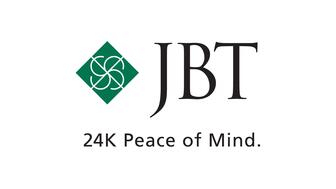Though its website has been down for a week, Christie’s proceeded with its jewelry and watch auctions on May 13-14, bringing in nearly $80 million.
Squirrel Spotting: 20 Traits of Great Retail Managers
From being a good listener to giving compliments, Peter Smith runs down a list of qualities top managers possess.

Robert Levin and Joseph Rosse captured the harsh realities of misguided managers in their book, “Talent Flow” when they wrote: “Companies that subject workers to managerial incompetence create their own labor shortages.”
People don’t leave companies, they leave bad managers. The sentiment has become a cliché and, like most clichés, there’s a very good reason for that. We don’t work for brands, or companies, or stores; we work for people. And if there’s not a good synergy, well … we either have disenchantment, disfunction or, ultimately, divorce.
Each store has its own unique DNA, but the common denominator in every retail store is the need for the manager to be good at leading people, have an obsession for customers, and be a driver of sales and profitability.
Too many managers occupy themselves back-of-house—making schedules, being the chief key-holder and solving the occasional customer or vendor headache. That’s a role that can fill the hours, but it will not make a difference in your business and it is a luxury few businesses can afford.
If I had a penny for every store owner who said, “I can’t get her or him out of that office …”
There’s been volumes written about the differences between leaders and managers, and I agree there are clear differences between the two. I know plenty of leaders who are disasters as managers, and I know plenty of managers who aren’t fantastic motivators or inspirational figures.
In retail, however, depending on the type of owner, the number of stores, and various other mitigating factors, managers must often serve as part-leader, all manager.
This list of traits of great retail managers is not intended to be exhaustive, but it represents a pretty good starting place for assessing the viability of current or future managers in your organization.
As with any column, I hope it will spur conversation and debate in your company about how you do things.
1. A Great Retail Manager … Drives Sales and Profitability
There should never be ambiguity about the store manager having to be the primary catalyst to delivering sales results and profitability. That must be priority No. 1, and everything else should be structured to support that end. If you find yourself challenging that assumption, you’re thinking about an entirely different job.
2. Obsesses Over Customers
Every retail store claims to be customer-centric, and some of them are right. Gallup reported
3. Is Positive
In “Positivity,” Barbara Fredrickson wrote, “Scientists at UC Berkley Haas School of Business examined how positivity affects managers. They found that managers with greater positivity were more accurate and careful in making their decisions and were more effective interpersonally.”
Being positive is good for our health, good for our employees and good for business. A manager with a negative mindset is really an owner with a leaking ship.
4. Coaches in Digestible Bites
There are many opportunities to offer coaching to your team in the course of a business day. Utilizing those opportunities to have a quiet word with individual team members is a very effective way to keep your people engaged and learning. If you have your eyes open, there are tons of teaching moments every day.
5. Creates Processes
Telling your people where you want to go is a whole lot easier if you provide a roadmap. A million-dollar goal is Monopoly money. Turning that into units, spread out over each month and week (consistent with the amount of business you would expect to do in that month), is a lot more palatable. Ensure that your goals (sales, close rates, average sales, customer touches, etc.) are tracked, transparent and realistic. Post them and celebrate the little wins along the way.
6. Walks the Talk
You can’t earn the respect of your team unless you walk the talk. Your professionalism and consistency will set the tone for the organization. Meg Whitman wrote in the Harvard Business Review (May 2016), “You have to be exactly who you are, because ultimately people will see through you if you’re not leading in an authentic way.”
7. Manages to People’s Strengths
Marcus Buckingham wrote in “First, Break All the Rules” that managers should, “Focus on each person’s strengths and manage around his weakness. Don’t try to fix the weaknesses. Don’t try to perfect each person.” That advice is counterintuitive. We are understandably drawn to fix people’s weaknesses, but the energy and effort would be better spent managing to their strengths and working around their weakness.
8. Is Honest About Good and Bad News
Jim Collins wrote in “Good to Great” that, “All good to great companies begin the process of finding a path to greatness by confronting the brutal facts of their current reality.” The tendency to subvert or gloss over bad news is not good management. It really communicates that you don’t trust or value your team. Tell them the truth and ask for their commitment and help to get things on track.
9. Trusts People
In “Coaching Salespeople into Sales Champions,” Keith Rosen wrote: “Trust, loyalty and motivation must be earned by managers. And you earn them by demonstrating that you care about them as individuals and that your attention is on managing and coaching each one of them as a unique person rather than as a commodity.” If you don’t trust your people one of two things happened: you either hired the wrong people and you need to fix that, or you hired the right people and you’re not managing them properly.
10. Listens Well
When you involve your team and listen to them remarkable things can happen and, sometimes, from the most unexpected places. We tend to pigeonhole certain team members as not being good in one area or another, and we miss valuable contributions by not engaging them at all or by patronizing them. Sonja Lyubomirsky wrote in “The Myth of Happiness” that, “Attentiveness is critical. A distracted listener, for example, appears to do more damage to a shared experience than even a hostile listener.”
“The single most important job of a manager is not to be the company’s top administrator, but to be the catalyst for driving sales and profitability. Everything else is a distraction and ought to be viewed accordingly.”11. Empowers People
Not delegating because you believe that you can do it better than anyone on the team is not smart business. There are no efficiencies to be had in that strategy, no professional development, and it is inherently disrespectful and egocentric. Empower your people to make decisions and to own projects, and get out of their way.
In “Decoding the New Consumer Mind,” Kit Yarrow wrote: “The antidote to anxiety is control. When people feel they have control, even if it’s just the control that comes from knowing when something disastrous will happen, they’ll feel less anxious.”
12. Is Decisive and Consistent
There’s nothing worse than an organization that continually reinvents itself. Somebody in management reads a good book or attends a seminar, and that becomes the new direction until the next book or conference. In “The Stupidity Paradox,” Mats Alvesson and Andre Spicer wrote, “The endless cycle of half-hearted managerial initiatives, flagrant contradiction, confusing ambiguity and a reluctance to learn is all too common.”
Be decisive, commit to your goals and stay the course. Great work has more to do with hard graft than inspired genius.
13. Encourages Devil’s Advocacy
When you are holding meetings, guard against “group think” by asking somebody in advance to play devil’s advocate. Openly and unapologetically debate and argue both sides of an argument and make sure that you are giving voice to all reasonable possibilities. Management getting pissed off that everyone doesn’t jump lockstep into whatever dish is being served is neither smart nor healthy.
Morten Hansen wrote in “Great At Work” that: “Our statistical analysis of 5,000 managers and employees found that those who mastered both fighting and uniting in their teams did perform better overall than those who didn’t fight and unite.” Once the meeting has ended and the decisions have been made, that’s when everyone needs to get lockstep behind the idea.
14. Is a Learning Leader
In “Simply Brilliant,” William Taylor wrote, “The most creative leaders I know are not just the boldest thinkers; they are the most insatiable learners.” The world is spinning too fast to believe that what worked for you 10 years ago, or even five years ago, is still relevant. You must be constantly learning in order to be a leader. Read. Listen to podcasts and watch TED Talks and subscribe to all relevant sources of quality content. The only reason not to be engaged in learning ongoing is because you don’t want to. If that’s the case, you have no business leading people.
15. Compliments Specifically
Robert Cooper wrote in “The Other 90%” that, “Most people give praise to the whole group. Yet no matter how sincere they may be, they inadvertently make every one of those individuals feel devalued. Each individual knows that he or she contributed something that the others did not. And you missed it.”
Complimenting (specifically) team members ought to be the easiest thing in the world to do, as it costs nothing, and yet I hear from people all the time that they never get a compliment from their manager. Come on, man! How difficult is it to recognize good work and point it out? Again, if you find yourself saying things like, “Well, that’s her job, why should I compliment her for that?” then you’re in the wrong job.
16. Shows Vulnerability
People work for people, not robots. Nobody expects you to have all the answers and, if you are one of those know-it-alls who continually demonstrates your supreme intellect, you’re probably an incredible pain in the ass anyway. In “Grounded, How Leaders Stay Rooted In An Uncertain World,” Bob Rosen wrote: “Going public and admitting that you don’t know has the added advantage of signaling to everyone around you that you are open to learning. It also tells people that you do not expect them to know everything.” An occasional sprinkle of humility is not such a bad thing either.
17. Hires Slow, Fires Fast
I’ll give credit for this to one of my mentors, Glenn Rothman. He said it all the time, and he was 100 percent right. The incredibly complex process of hiring great people demands a thoughtful and deliberate approach that uses multiple people and the objectivity of science (a legitimate personality profile). It is just too important to be rushed. On the firing side, once you have exhausted your energy and resources to correct a chronic underperformer, you need to be decisive and let them go. Firing is difficult—it should be—but it is also incredibly liberating for all parties once the decision has been made. Fire respectfully and with as much dignity as possible.
18. Manages the Baggage
If you won’t manage some baggage, you can’t manage great salespeople. It’s as simple as that. Virtually every top salesperson comes with a warning label that predicts hair loss and anxiety rashes for managers, but they do make things happen and any worthwhile business cannot thrive without them. Katherine Graham-Leviss wrote in “The Perfect Hire,” that: “References for the high performers in sales will often indicate that the person was incredible at the job, but not easy to work with.” So manage that baggage and give the performers all the support they need. They’re worth it.
19. Champions Company Culture
In his latest book “The Advantage,” Patrick Lencioni wrote of leaders: “Their top two priorities are to set the direction of the organization and then to ensure that people are reminded of it on a regular basis.”
Culture is one of those seemingly amorphous ideas that is often spoken of and frequently debated but rarely understood. For me, it is the sum total of your actions across your organization, starting with the manager. If your aspiration is to have a customer-centric workplace, while treating your people like crap … well, those behaviors are your culture, not the aspiration. You simply cannot have a customer-centric environment if your treat your people badly.
20. Doesn’t Try to Be the Top Administrator
I’m purposely coming full circle on this last point.
Yes, schedules must be made. Team meetings and individual coaching sessions need be conducted. Customer challenges will invariably elevate to the manager. Inventories and merchandising tasks need to be coordinated and there will be occasional calls to vendors, operational tasks, etc. that require the manager’s time. The job of a manager is complex and requires wearing many hats. That said, if the manager finds herself or himself becoming a catch-all for everything that no one else wants to do and the days become consumed in stuff, the company needs a reset.
The single most important job of a manager is not to be the company’s top administrator, but to be the catalyst for driving sales and profitability. Everything else is a necessary or unnecessary distraction and ought to be viewed accordingly. Tasks can be delegated, priorities established, but managers must be protective of their central goal as a manger—to deliver results. Without that, nothing else matters.
Peter Smith is president of Vibhor, a public speaker and author of “Sell Something” and “Hiring Squirrels.” He spent 30 years building sales teams in retail and wholesale and he can be contacted at dublinsmith@yahoo.com, peter@vibhorgems.com, or on LinkedIn, Facebook or Twitter.
The Latest

Despite the absence of “The Allnatt,” Sotheby’s Geneva jewelry auction totaled $34 million, with 90 percent of lots sold.

Lilian Raji gives advice to designers on how to make the most of great publicity opportunities.

Despite the rising prices, consumers continue to seek out the precious metal.

The mining company wants to divest its 70 percent holding in the Mothae Diamond Mine in an effort to streamline its portfolio.


Why do so many jewelers keep lines that are not selling? Peter Smith thinks the answer lies in these two behavioral principles.

The “Argyle Phoenix” sold for more than $4 million at the auction house’s second jewels sale.

Tradeshow risks are real. Get tips to protect yourself before, during and after and gain safety and security awareness for your business.

The annual list recognizes young professionals making an impact in jewelry retail.

While overall sales were sluggish, the retailer said its non-bridal fine jewelry was a popular choice for Valentine’s Day.

The mining giant also wants to offload its platinum business as part of an overhaul designed to “unlock significant value.”

Christie's is selling one of the diamonds, moving forward with its Geneva jewelry auction despite the cyberattack that took down its website.

The ad aims to position platinum jewelry as ideal for everyday wear.

Retailers can customize and print the appraisal brochures from their store.

The move follows a price-drop test run in Q4 and comes with the addition of a “quality assurance card” from GIA for some loose diamonds.

The site has been down since Thursday evening, just ahead of its spring auctions.

The late former U.S. Secretary’s collection went for quadruple the sale’s pre-sale estimate.

Kimberly Adams Russell is taking over the role from her father, David Adams, marking the third generation to hold the title.

As a token of womanhood, this necklace depicts when Venus was born from the sea.

The deal gives the retailer control over the distribution of Roberto Coin jewelry in the U.S., Canada, Caribbean, and Central America.

Show your mother some love with a piece of fine jewelry.

The company’s Easton location will remain open.

Brian D. Fleming of Carla Corporation was elected to serve a one-year term in the role.


Sponsored by the Las Vegas Antique Jewelry and Watch Show

Tobak, author of “Ice Cold: A Hip-Hop Jewelry History,” shares how the exhibition came to be, and the pieces people may be surprised to see.

Stars adorned themselves in emeralds, platinum, and myriad bird motifs, writes Associate Editor Natalie Francisco.

M.S. Rau is set to open a seasonal gallery in the high-end resort town early next month.





























